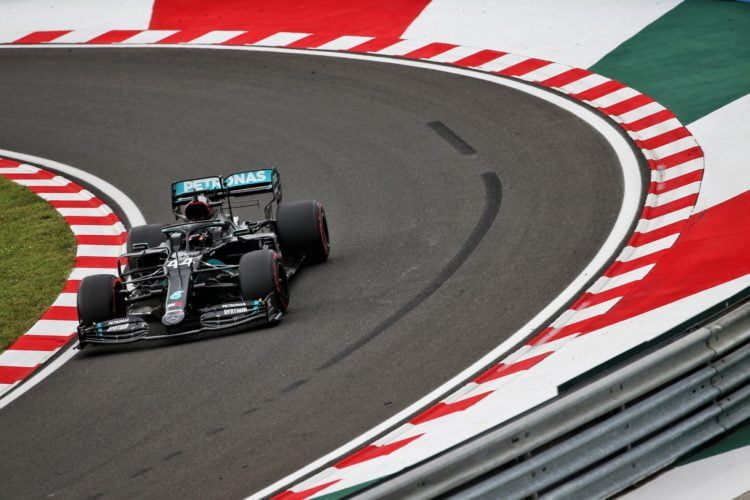Mercedes has rejected Ferrari’s claim that the performance of a Formula 1 engine would have been impacted by the FIA’s Technical Directives.
Ferrari came under scrutiny in 2019 after a sequence of emphatic pole positions in Formula 1 raised questions about the performance of its power unit.
Towards the end of the campaign the FIA issued several Technical Directives, most prominently clarifying details regarding fuel flow, and in February it emerged that the governing body had reached a private settlement with Ferrari.
Ferrari has lacked straight-line speed this year and it had attributed it to the draggy nature of its SF1000 as it chased an improved level of performance through the corners.
But in Friday’s press conference at the Hungarian Grand Prix Binotto conceded for the first time that the Technical Directives influenced Ferrari’s 2020 performance and suggested other manufacturers were also affected.
Mercedes boss Toto Wolff described the idea as “another complete bulls**t story” and explained that Ferrari’s display through last year pushed the marque to its current level.
“There is a clear regulation on power units that had been clarified in Austin what we are allowed to do and not, which was important,” he said.
“But it was nothing that was in any way surprising, because if you comply to the regulations then that was clear anyway.
“I think the irony of the story is that we were pushed by some of our competitors to absolutely new levels, it brought us to almost burnout last year to develop and innovate in a way to be competitive on track.
“And here we go, we have made a substantial jump in performance from 2019 to 2020 because we needed to last year. And that is a little bit ironic for me.”
Mercedes’ cars, and customers Racing Point and Williams, have been seen with the occasional plume of smoke this year and Wolff clarified why this has happened.
“We seem to have an issue that the oil gets out of the chassis,” he said.
“We don’t know where that comes from, but it seems when we fill it up to the top we are not in much control of how much escapes at the beginning.
“We see it on all the Mercedes engines and it’s something that we need to understand. It’s not a reliability issue, which I’m glad that it isn’t.”







